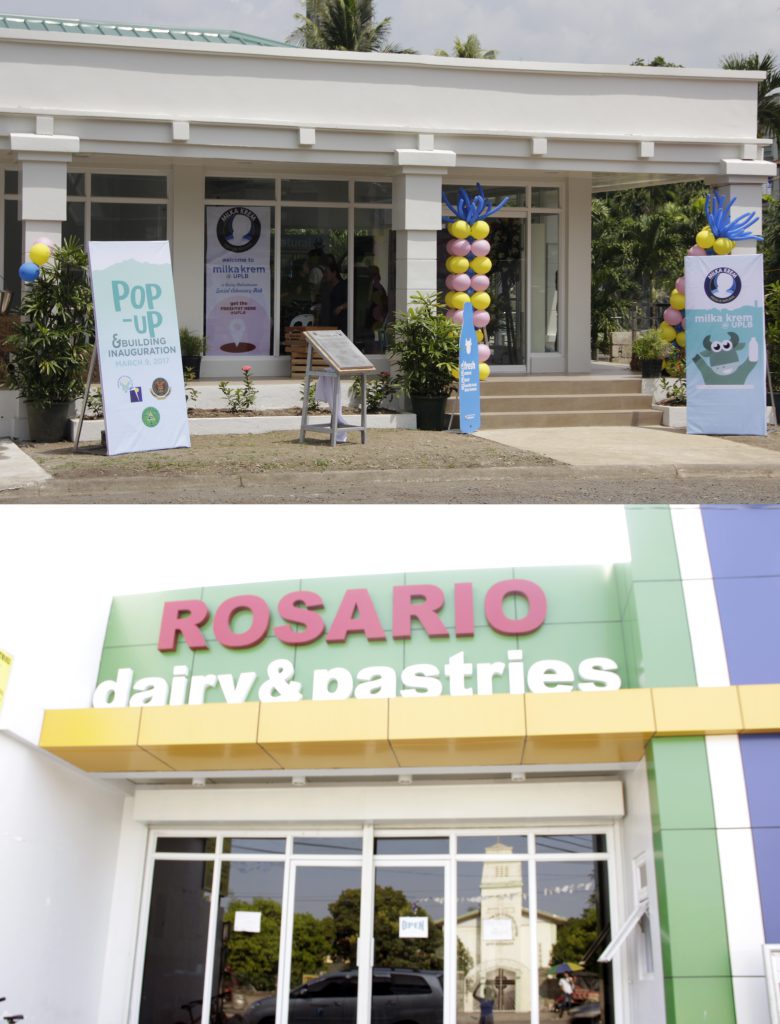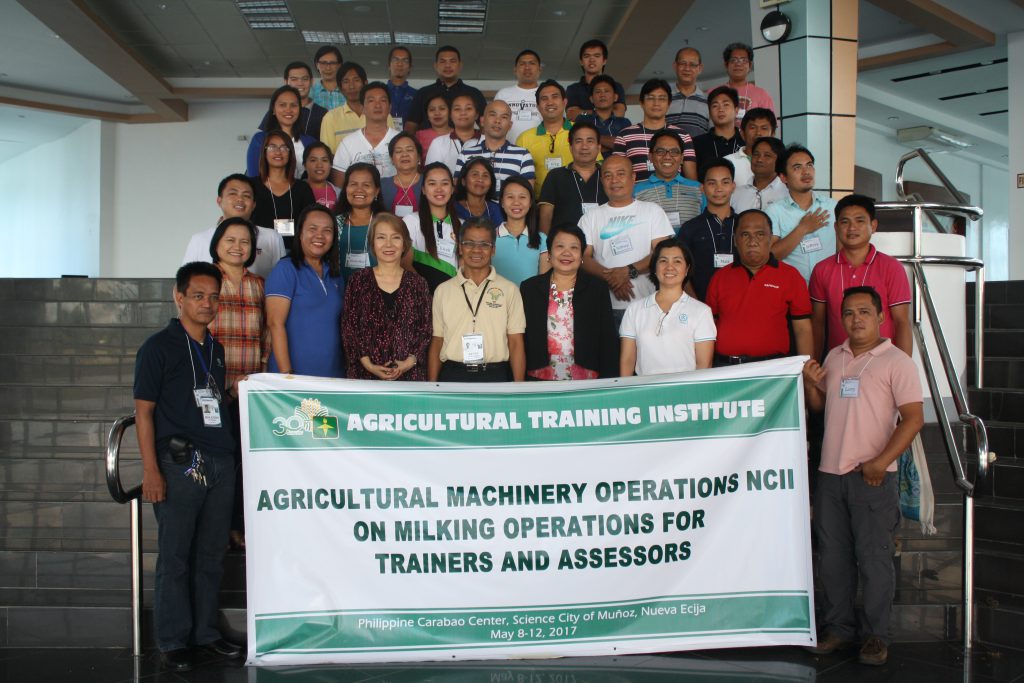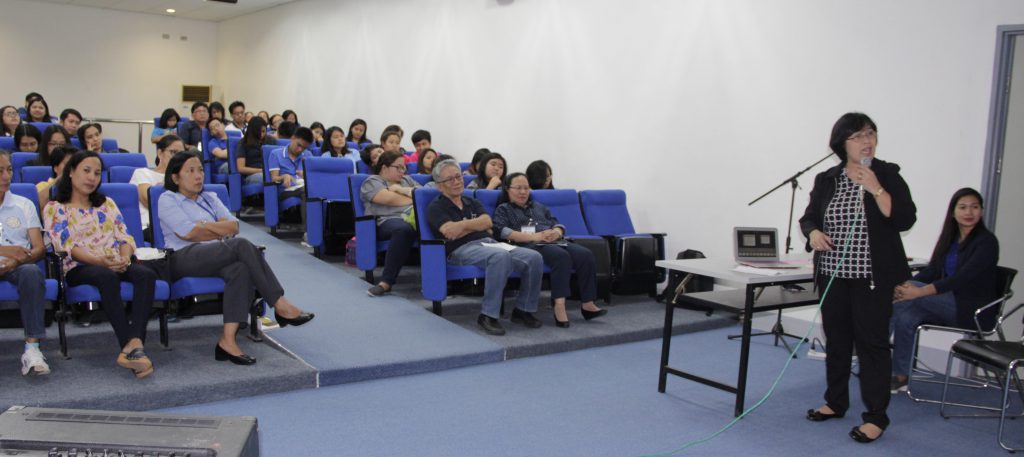A branch of ‘Milka Krem’ and a dairy and pastries processing plant and outlet were opened in two strategic sites in Luzon as showcases of the Philippine Carabao Center’s (PCC) continuing efforts in strengthening its Carabao-based Enterprise Development program (CBED).
The Milka Krem branch is on the campus of the University of the Philippines Los Baños (UPLB) beside the Baker Memorial Hall while the Rosario Dairy & Pastries (Processing Plant/Outlet) is located at Poblacion East, Rosario, La Union.
The grand opening of Milka Krem at UPLB was last April 7 while the launching of the Rosario Dairy & Pastries (Processing Plant/Outlet) took place last March 17.
Both stores were established to serve as a technology-business demonstration and learning hubs for the farmers.
Milka Krem at UPLB
The Milka Krem at UPLB is established on a 300 sq m facility with PCC funding worth Php10M. Its establishment was made possible through the collaboration of PCC@UPLB and UPLB.
Products that are being sold in this branch include fresh milk, choco milk, coffee milk, fruit-flavored juices, white cheese, mozzarella, pastillas de leche, assorted flavors of yoghurt and yoghurt drink, flavored yema and ice cream. They carried the brand name “Carabest” with the products coming from dairy cooperatives and/or associations and an entrepreneur being assisted by the PCC @ UPLB.
The cooperatives and associations are the General Trias Dairy Raisers Multi-Purpose Cooperative, Rosario Dairy Raisers Association, Magdalena Dairy Raisers Association, and the Llano Farmers Multi-Purpose Cooperative while the private entrepreneur is from Balayan, Batangas.
The branch is managed by the PCC@UPLB under the supervision of its OIC center chief Dr. Thelma Saludes.
Rosario Dairy & Pastries
The Rosario Dairy & Pastries (processing plant and outlet) was established with a funding of Php2.9 million on a 120 square meter area. It is managed by the Rosario La Union Dairy Producers Association, Inc. (RLUDPAI), one of the dairy cooperatives being assisted by PCC@DMMMSU.
The establishment of this facility was made possible through the collaboration of PCC@DMMMSU with the local government unit of Rosario, La Union and the Department of Trade and Industry. The Rosario LGU provided the land where the facility was established while the DTI gave dairy processing equipment that included freezer, refrigerator, chiller double burner, and a working table.
The facility was established for the processing and selling of the milk produced by crossbred and purebred carabaos of the farmers in Rosario, La Union and its other neighboring towns, according to Dr. Gloria Dela Cruz, center chief of PCC@DMMMSU.
Presently, five farmers’ cooperatives or associations are selling their milk harvest in this facility. They are the RLUDPAI; Aringay Dairy Carabao Raisers Association, Bantog Samahang Nayon Multi-Purpose Cooperative, Samahan ng Maralitang Magsasaka ng Patalan in Lingayen, Pangasinan; and Naguilian, La Union farmers who were entrusted with carabaos by the PCC.
Among the products currently available for sale to the public are pasteurized milk, chocomilk, fruit-flavored milk (pineapple, four seasons, strawberry, blueberry, mango and pineapple-orange), pastillas-de-leche, yogurt, espasol, ube halaya, puto, chicharabao, macaroons, dulce de leche candy and brownies. A number of private entrepreneurs in Luzon also sell their products on consignment basis.
These two facilities are expected to boost the farmers’ income from the sales of their carabao’s milk and processed dairy products.



